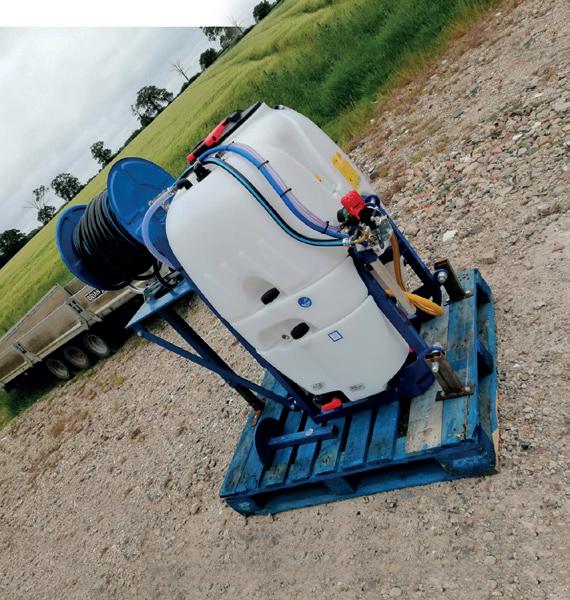
4 minute read
to bear fruit
ingredients they’ve gathered.
More and more people are taking a literally spirited approach to diversi cation, using their potato crops to make, distil and bottle gin and vodka. A growing popular trend is viticulture – another RAF client in Kent is now enjoying the fruits of their labour with the rst harvest from their vineyard. The couple had no farming experience until they were bequeathed 27 acres of fallow land from their parents and were approached by a grape-grower who wanted to lease a south-facing slope. “They obviously then realised that instead of renting it out, they could start their own vineyard,” says Matthew. “Banks wouldn’t look at them as a completely new business so they had to nd other ways to fund the buying, planting and establishing the vines. Three years on we are helping them to consolidate their borrowing into one much more a ordable loan, and they’re actually now ahead of schedule. They were expecting a half-crop last summer, their year three, but the 40ºC July meant they got nearly a full crop, and now they’re already selling wine.”
Advertisement
Of course, many farmers are also eligible for grants to help them develop their existing business or diversify. Since Brexit the government has established a number of payments to replace EU farming subsidies – for instance the Added Value grant, which can pay up to £300,000 for facilities to prepare and process agricultural products, or the Farming Equipment and Technology Fund, which will typically cover around a third of the cost of speci c machines, such as infra-red fruit ripeness spectrometers, mobile frost fans and crop storage sensor systems.
However, there are ways farmers and growers can nance their new project, conversion or even entirely new business without a ecting their cash ow. And if you do it right, you can keep back those precious cash funds you’ve set aside for rainy days – or, as is increasingly the case, too many dry ones.

“Fruit farming can be an unpredictable business,” says Matthew Smart, CEO of Rural Asset Finance. “Weather and related factors can make life very uncertain before you get to fresh produce export red tape, and if farmers have a safety net of savings they understandably want to protect that so they can cope if anything unexpected happens. But there are very e ective and a ordable ways to nance new machinery, buildings or projects without touching those savings.”
One Cambridgeshire fruit farm is doing just that. Having taken over the business two years ago, the farmer immediately saw he could make far better use of his cold stores by partitioning one to house apples and plums simultaneously. A partition wall, new sliding doors and a new cooling loop of evaporator, condenser and compressor pushed the cost up over £20,000; but with RAF’s help the farmer has achieved this without a ecting his cash ow.
“There’s always uncertainty with frosts and pollination,” he says, “so the key is nding a way to keep cash in reserve in case you have a bad year. We had our plum crop in one old store which included equipment from the 1960s, and our apple crop in another that was way too big – and of course some apples you have to store at di erent temperatures. It didn’t work and therefore it made sense to bring them together –but obviously you need to do more than just put a wall up, so we contacted Rural Asset Finance after seeing them in Fruit & Vine magazine. Dividing up the newer building will give us the exibility of storing fruit at di erent temperatures in the same unit – and we’re looking to convert the old, now disused store into a residential dwelling.”
Farmers looking to borrow nance for new initiatives often meet resistance from traditional lenders. Many banks assess only a business’s past performance as the basis for releasing new money, which tends to lock out any farmer wanting to diversify or expand as these are new, forwardlooking income streams, not based on history – but there are alternative ways of nancing your dream. RAF nanced the Cambridgeshire cold store with a xed-rate, xed-term hire purchase agreement on the equipment and the future e ciencies will repay the nance facility. RAF also funds whole new farm-based business arms such as holiday lets, farm cafés and renewable energy projects such as solar panels and biogas plants using farm feedstock with xed-term, xed-rate loans secured on land and buildings.
There are numerous opportunities for the innovative fruit farmer to branch out and make more money. Opening up to the public is an obvious revenue stream with accommodation, a café, camping and glamping, PYO and open days, but many farmers also run skills workshops, farm schools or even foraging tours, showing guests how to cook, drink or preserve and store the
But canny farmers and growers are using these grants as a basis and then borrowing the remainder of the funding to complete each project from specialist agri-lenders such as Rural Asset Finance. This means in some cases they can fund even the most ambitious fruit and vine projects, again without compromising their cash ow.
“More and more farmers need an enhanced or alternative revenue stream,” says Matthew. “Therefore if you want to diversify, using a government grant to cover a proportion of the outlay, and then using a ordable nance to fund the rest, enables you to develop what will hopefully be a very lucrative additional revenue stream while still protecting your cash ow and your savings.”





Which varieties?
Fruit: (Please specify number of trees)
Orchard fruit Apples Pears Plums Cherries
Soft fruit: (Please specify area in Ha)
Strawberries Raspberries Gooseberries Blackcurrants Blackberries
Other (please specify)
This is to allow us to send you Fruit & Vine related newsletters and updates. We do not share your Email address.
What brand of machinery do you prefer?
Do you use a contractor?



Other (please specify)
Is this your main enterprise?
For vineyards – do you produce your own branded wine?
If not, which winery do you use?
Do you have a winery onsite?
What year was it set up?
Do you grow
What advice is missing from the industry?
Apples – which varieties?
Research questions
What publications do you read?
Is there any di culty in getting equipment within the UK?
Where do you buy products and machinery?
MANY MORE NEW AND USED MACHINES AVAILABLE - PLEASE ENQUIRE





ATVS/UTVS









